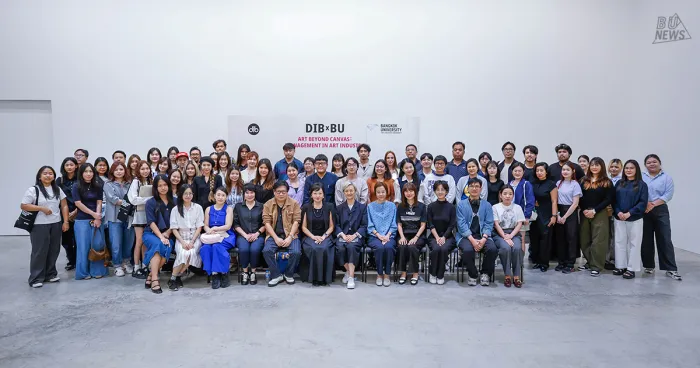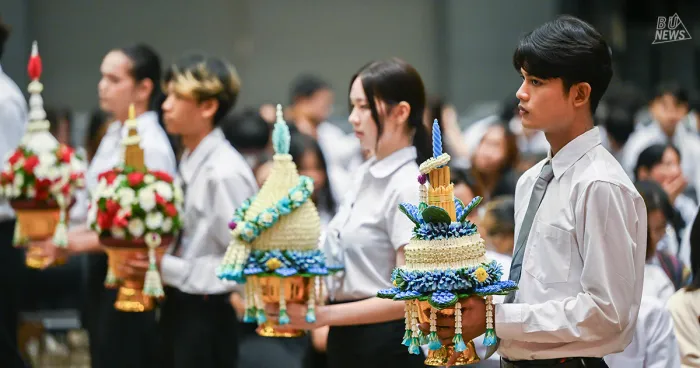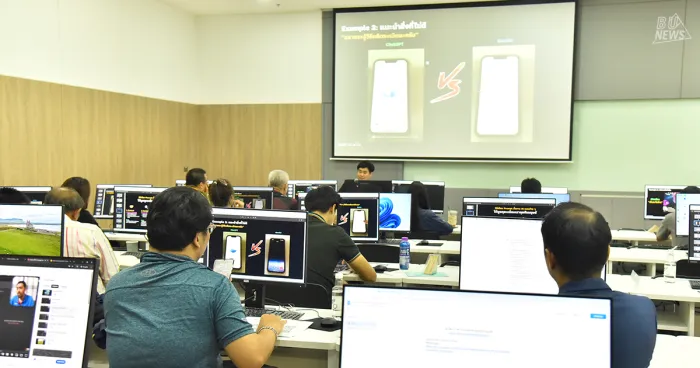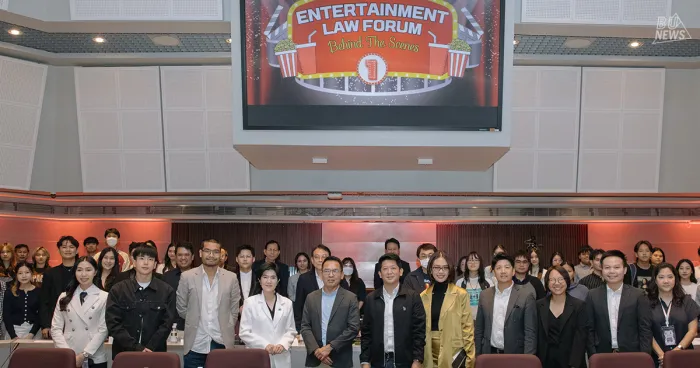Featured Stories
Featured Stories — BU Promotes Sustainable Cooperation Through Thai Food Festival in Bhutan "Thai Flavors, Bhutanese Warmth"
BU Promotes Sustainable Cooperation Through Thai Food Festival in Bhutan "Thai Flavors, Bhutanese Warmth"

Bangkok University has developed sustainable international cooperation in education and tourism by co-organizing the "Thai Food Festival 2025: Thai Flavors, Bhutanese Warmth" in Thimphu, Kingdom of Bhutan. This reflects the Sustainable Development Goals (SDGs) according to the mission of Ajarn Purat Osathanugrah, President of Bangkok University, who has planted the sustainability flag for Bangkok University to be part of driving society forward, as presented at the Mahidol University Quality Fair 2024.


The Thai Food Festival resulted from collaboration between Bangkok University and the Royal Institute for Tourism and Hospitality (RITH), led by Ajarn Jermsuda Manakul, Dean, School of Humanities and Tourism Management. She led a team of 2 expert lecturers: Ajarn Suthee Sertsrifrom, Hotel Management Department and Ajarn Andhika Pradana, Bangkok University International, along with 4 student representatives, to transfer knowledge of sustainable Thai cooking methods.


Before the festival opening, Bangkok University collaborated with RITH to organize a 5-day Thai cooking training program to create hands-on cooking experiences and promote cross-cultural learning. This exemplifies promoting quality and accessible education for everyone. Participants from local hotels and restaurants, as well as faculty and students from RITH, received knowledge transfer on Thai cooking techniques alongside creative learning on incorporating local Bhutanese ingredients. All trainees received a "Certificate of Completion: Thai Cuisine Training Program" certified by both RITH and Bangkok University.

Ajarn Jermsuda stated, "The training program over the past week was more than just culinary exchange - it was a shared journey of learning, cultural appreciation, and friendship. We hope the knowledge and experiences shared in this festival will inspire and empower everyone." This knowledge transfer not only enhanced cooking skills but also created lifelong learning opportunities, aligning with SDG 4, which aims to ensure inclusive and equitable quality education and promote lifelong learning opportunities for all.


The 2-day Thai Food Festival 2025 created positive impacts on skill development for personnel in Bhutan's tourism and service industries. The event was honored by Minister Yeezang De Thapa, Minister of Education and Skills Development of Bhutan, as the presiding guest, demonstrating policy-level support that will make this cooperation sustainable and effectively scalable.
Participants from local hotels and restaurants gained new knowledge applicable to developing their businesses, contributing to quality job creation and sustainable economic growth, supporting SDG 8, which promotes sustained, inclusive, and sustainable economic growth, full and productive employment, and decent work for all.

The festival's core was presenting Thai dishes using local Bhutanese ingredients. Featured menus showcased Thai authenticity including Chor Muang (purple flower dumplings), traditional glass noodle salad, Tom Kha Gai (coconut chicken soup), grilled chicken with Jaew dipping sauce, and adaptations using local Bhutanese ingredients such as Tom Yum Crawfish and Pad Krapow Sikum.
These dishes not only added culinary diversity but also created added value for Bhutan's local products, potentially developing into new selling points for the country's tourism industry. This includes efficient use of local resources, reducing dependence on imported ingredients, and creating added value for local farmers and producers, aligning with circular economy principles and sustainable development.

The project's success resulted from strong collaboration between educational institutions under the Memorandum of Understanding (MoU) between Bangkok University and the Ministry of Education and Skills Development of the Kingdom of Bhutan (MoESD). The goals encompass multiple dimensions: Promoting skill development through joint training programs, Enhancing service quality in tourism and hospitality industries, Building academic relationships between institutions and Strengthening sustainable international cooperation
The project demonstrates using food as a tool to create "cultural bridges" without destroying local identity, but rather promoting the use of local ingredients and wisdom alongside Thai cooking techniques. This exemplifies sustainable cultural tourism that emphasizes mutual learning and shared value creation between two cultures, supporting SDG 17, which aims to strengthen partnerships for sustainable development goals.

The Thai Food Festival in Bhutan represents more than a Thai cooking demonstration-it symbolizes creating sustainable cooperation through education and culture. Results will expand to joint curriculum development, student and faculty exchanges, and collaborative research projects in the future.3

This project confirms the important role of educational institutions in driving sustainable development goals through cooperation that emphasizes knowledge exchange, skill promotion, and cross-cultural understanding, which are important foundations for long-term sustainable development.

The success of Thai Food Festival 2025 marks the beginning of greater cooperation between Bangkok University and educational institutions in Bhutan, demonstrating the potential of using Soft Power in the form of food and culture as tools for creating sustainable international relationships through academic and cultural exchanges that strengthen understanding between the two countries.
This also creates a good model for cooperation between developing countries in the Asian region, particularly in using education and culture as tools for sustainable development.

Information
Register Info
Contact Us





